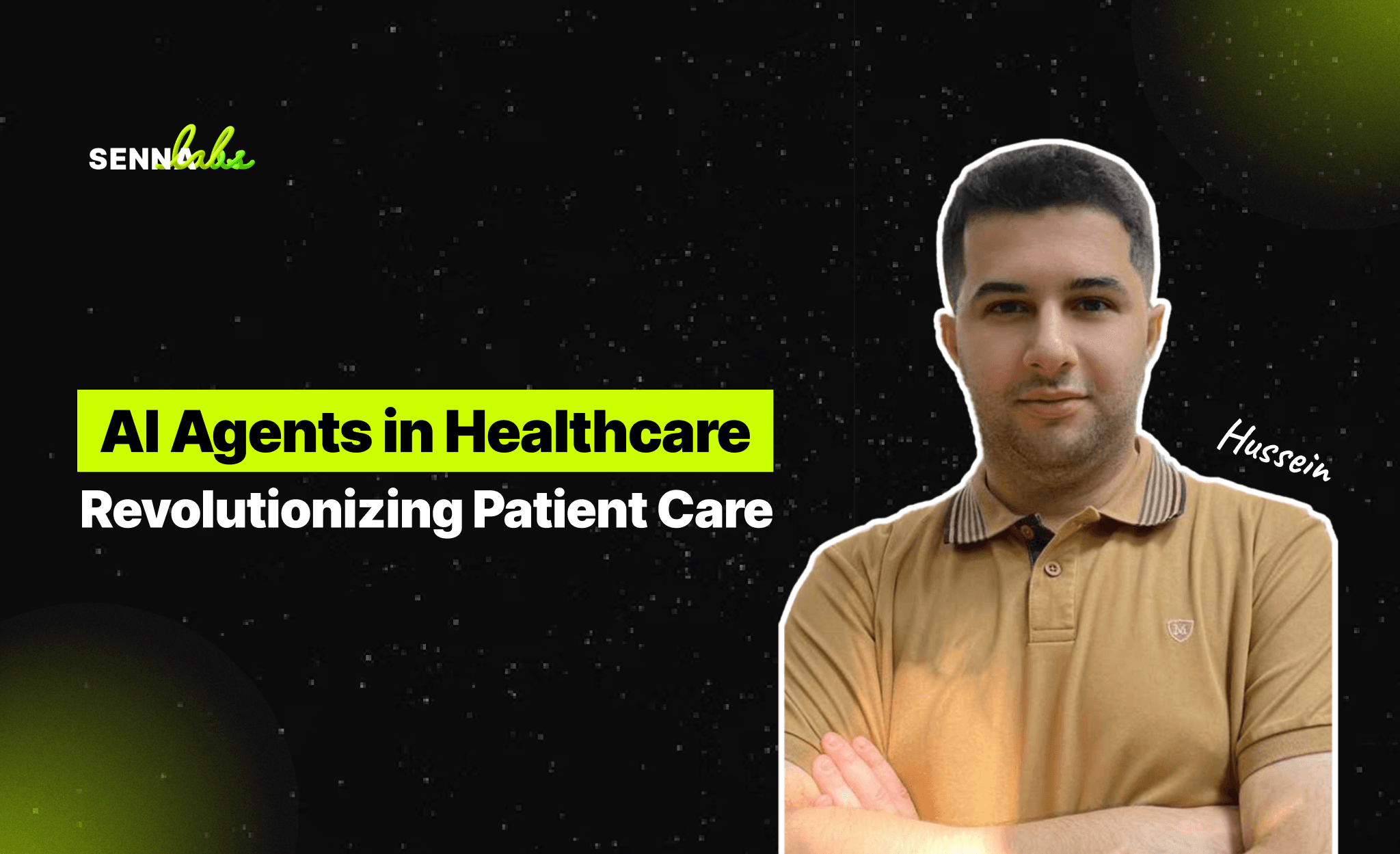AI Agents in Healthcare: Revolutionizing Patient Care
Share

The healthcare industry is embracing Artificial Intelligence (AI) to address the challenges of increasing patient demands, administrative burdens, and the need for personalized care. One of the most impactful applications is AI agents acting as virtual health assistants. These intelligent systems provide personalized health recommendations, schedule appointments, and send medication reminders, significantly improving patient engagement and enabling healthcare providers to manage workloads more effectively.
This article explores the role of AI agents in healthcare, focusing on their benefits, practical applications, and implementation strategies.

The Role of AI Agents in Healthcare
AI agents in healthcare serve as virtual assistants that enhance patient care and streamline provider operations. They perform functions such as:
-
Personalized Health Guidance: Delivering tailored advice based on patient history and preferences.
-
Appointment Scheduling: Managing bookings with healthcare providers efficiently.
-
Medication Reminders: Ensuring patients adhere to prescribed treatments.
-
Symptom Monitoring: Providing preliminary assessments and guiding patients on the next steps.
Use Case: A virtual health assistant uses a patient’s medical history and current symptoms to recommend follow-up care while scheduling an appointment with a specialist.
Key Benefits of AI Agents in Healthcare
1. Improved Patient Engagement
AI agents interact with patients in a conversational manner, providing personalized and timely responses.
-
Example: Sending daily reminders for medication and exercise routines, encouraging adherence to treatment plans.
2. Enhanced Efficiency for Providers
By handling routine tasks, AI agents allow healthcare professionals to focus on complex cases.
-
Example: Automating appointment scheduling reduces administrative workload for front-desk staff.
3. Better Accessibility
AI agents are available 24/7, making healthcare more accessible to patients regardless of time or location.
-
Example: A patient experiencing mild symptoms at midnight receives guidance from an AI agent without needing an emergency visit.
4. Personalized Recommendations
AI analyzes a patient’s medical data to provide tailored health advice and reminders.
-
Example: Suggesting dietary changes to a diabetic patient based on recent blood sugar levels.
5. Cost Savings
Automating routine processes reduces operational costs for healthcare providers.
-
Example: Reducing no-shows through appointment reminders sent by an AI agent.
Use Case: Virtual Health Assistants in Action
Problem:
A healthcare provider struggled with patient engagement and administrative overload, resulting in poor adherence to treatment plans and overworked staff.
Solution:
The provider deployed AI-powered virtual health assistants to handle routine interactions and reminders.
Implementation:
-
Patient Interaction: The AI agent communicated with patients via chat or voice interfaces, offering health advice and scheduling appointments.
-
Medication Adherence: Personalized reminders were sent to patients based on their prescriptions.
-
Symptom Monitoring: Patients reported symptoms to the AI agent, which provided initial assessments and recommended follow-ups.
Results:
-
Increased Adherence: Medication adherence improved by 25% due to timely reminders.
-
Efficiency Gains: Administrative staff workload was reduced by 30%.
-
Higher Patient Satisfaction: Patients appreciated the convenience and accessibility of the virtual assistant.
Key Features to Look for in Virtual Health Assistants
-
Natural Language Processing (NLP):
AI agents should understand and respond to patient queries naturally, making interactions seamless. -
Examples: Conversational AI tools like Amazon Lex and Google Dialogflow.
-
Personalization:
The system should analyze patient data to provide tailored recommendations and reminders. -
Examples: AI platforms like HealthTap and Ada Health specialize in personalized health interactions.
-
Integration Capabilities:
AI agents should integrate with electronic health records (EHR) and other healthcare systems for comprehensive support. -
Examples: Tools like Epic’s MyChart integrate AI with existing healthcare systems.
-
Data Security and Compliance:
Protecting sensitive patient data is critical. AI agents must adhere to regulations like HIPAA or GDPR. -
Scalability:
The system should accommodate growing patient loads as the organization expands.
How to Implement AI Agents in Healthcare
Step 1: Define Objectives
Identify specific challenges the AI agent should address, such as improving adherence or reducing administrative tasks.
Step 2: Choose the Right AI Platform
Select an AI agent that aligns with your goals, offers essential features, and integrates with existing systems.
Step 3: Start with a Pilot Program
Test the AI agent in a controlled environment to evaluate its effectiveness and gather feedback.
Step 4: Train the System
Train the AI using patient data to improve accuracy and personalization.
Step 5: Monitor and Optimize
Continuously track performance metrics like patient engagement, adherence rates, and operational efficiency to refine the system.
Challenges and Solutions
Challenge 1: Resistance to Adoption
Solution: Provide training for staff and educate patients on the benefits of AI-powered virtual assistants.
Challenge 2: Data Privacy Concerns
Solution: Use AI systems with robust encryption and compliance with data protection regulations.
Challenge 3: High Initial Costs
Solution: Start small with a pilot program to demonstrate ROI before scaling up.
The Future of AI Agents in Healthcare
As AI technology advances, virtual health assistants will become more sophisticated, offering capabilities like:
-
Predictive Analytics: Anticipating patient needs based on historical and real-time data.
-
Emotional Intelligence: Recognizing and responding to patient emotions to provide empathetic care.
-
Integration with Wearables: Monitoring health metrics like heart rate or glucose levels via connected devices.
-
Global Accessibility: Breaking language barriers with multilingual capabilities.
Conclusion
AI agents are revolutionizing patient care by automating routine tasks, personalizing health recommendations, and improving accessibility. Virtual health assistants not only enhance patient engagement but also empower healthcare providers to focus on delivering high-quality care.
For the healthcare provider in this use case, deploying AI agents improved medication adherence, reduced staff workload, and boosted patient satisfaction. As AI continues to evolve, its potential to transform healthcare systems and elevate patient care will only grow, making it an invaluable tool for modern medicine.

Share
